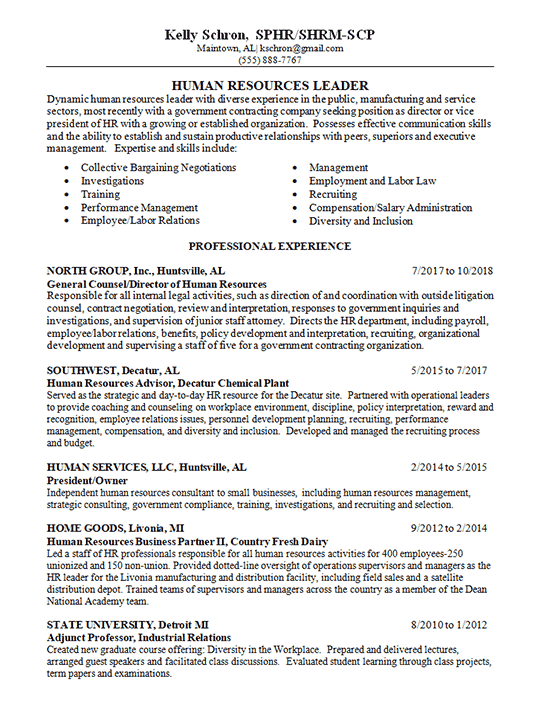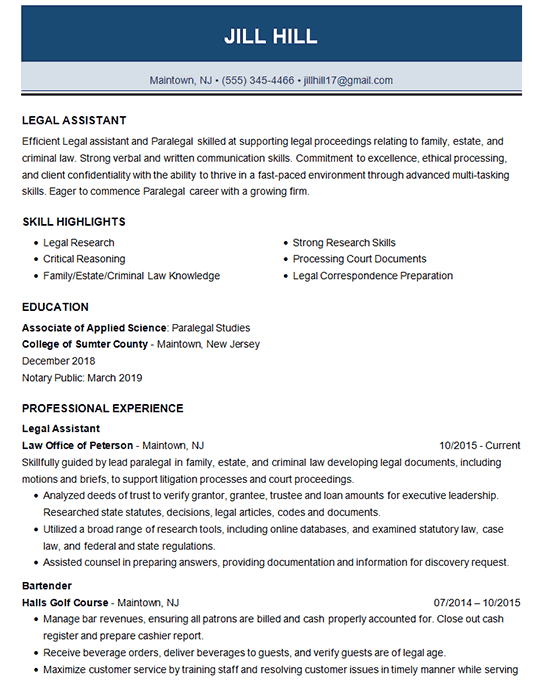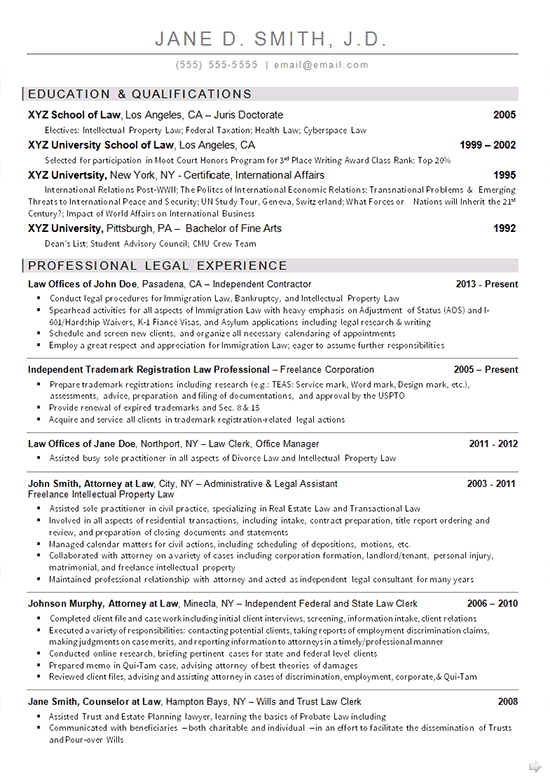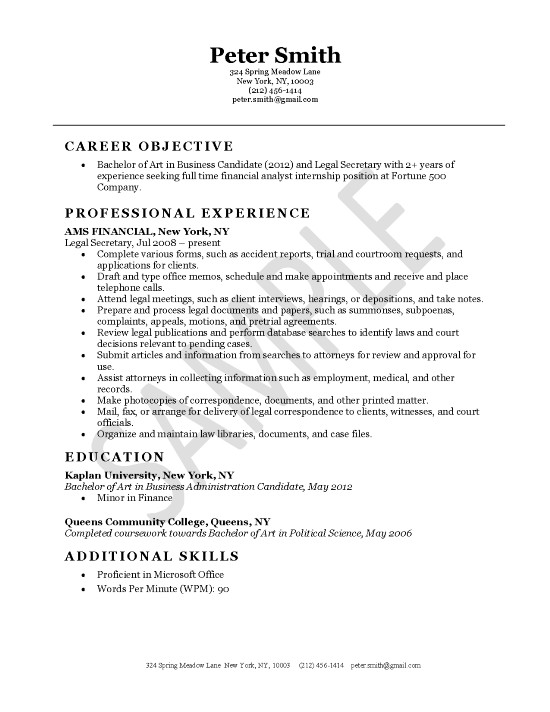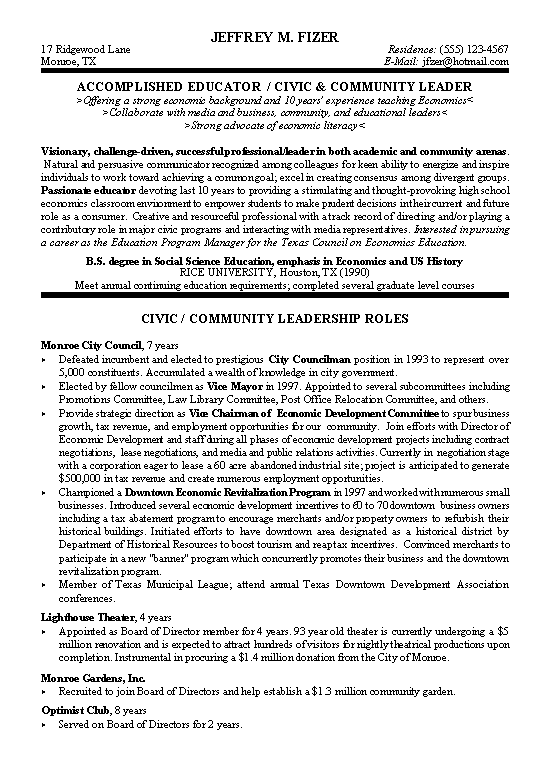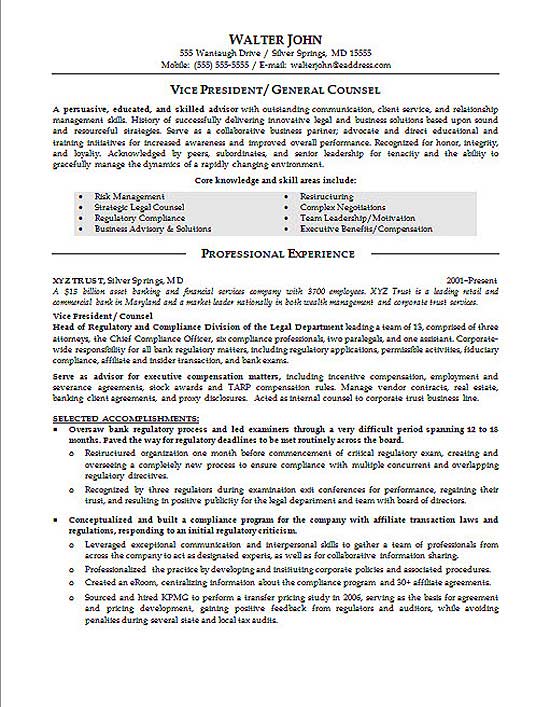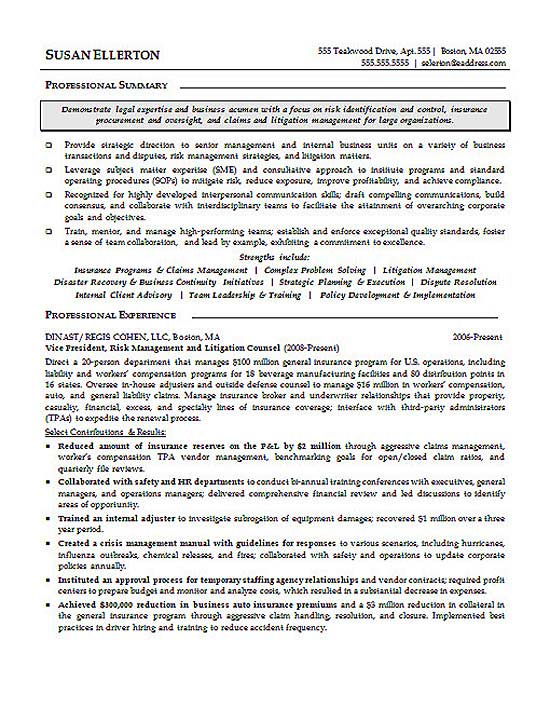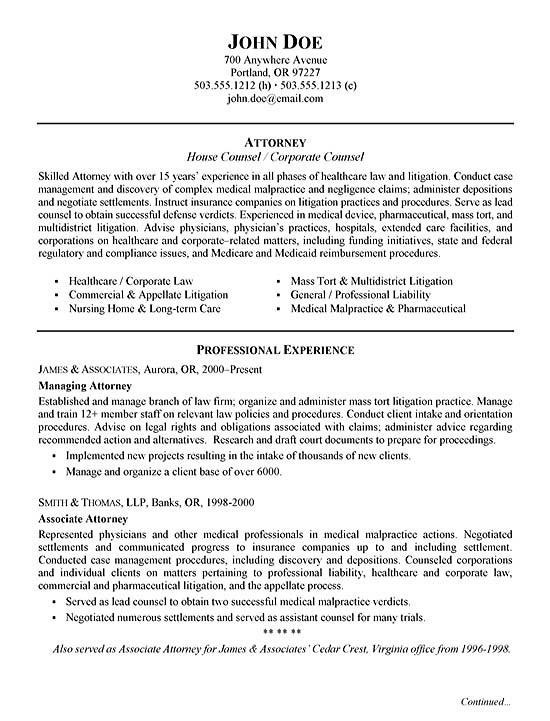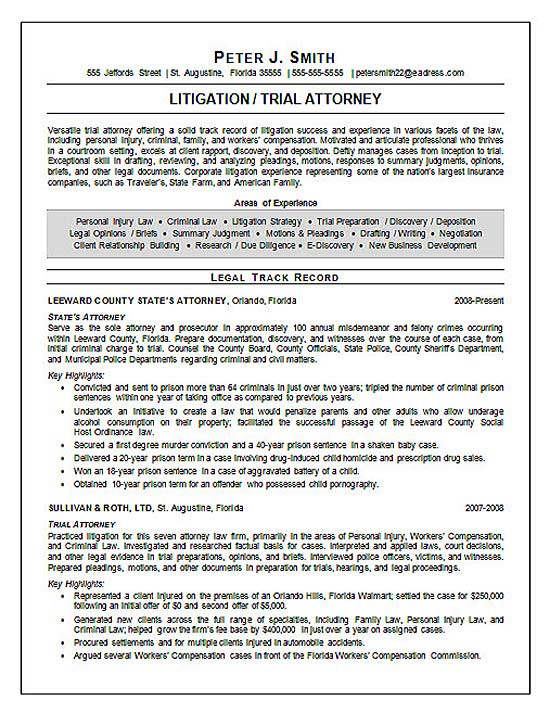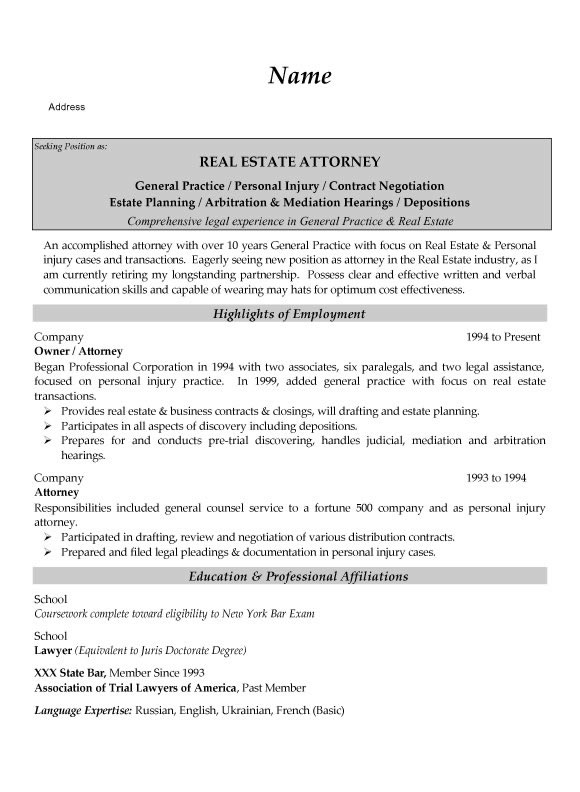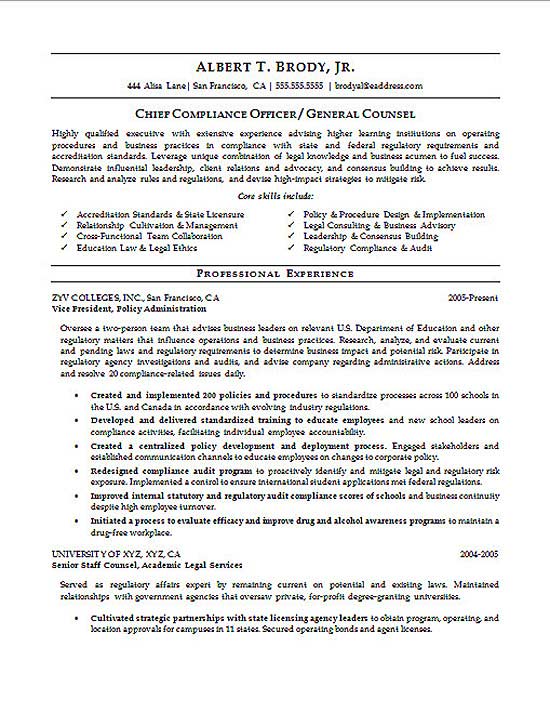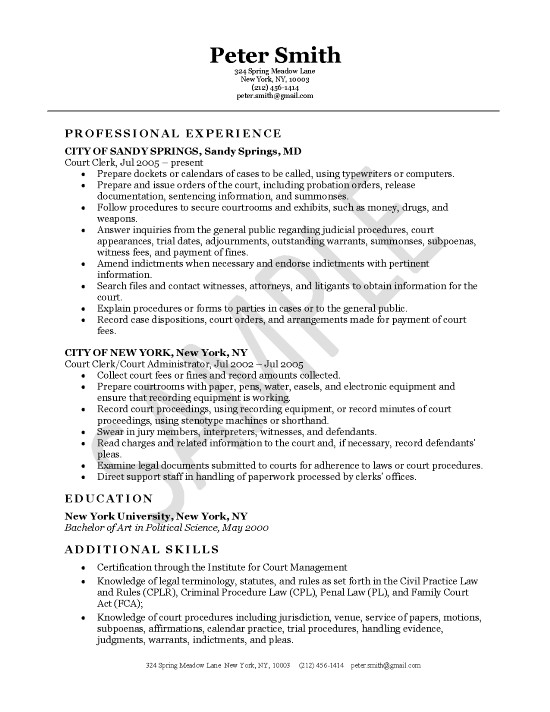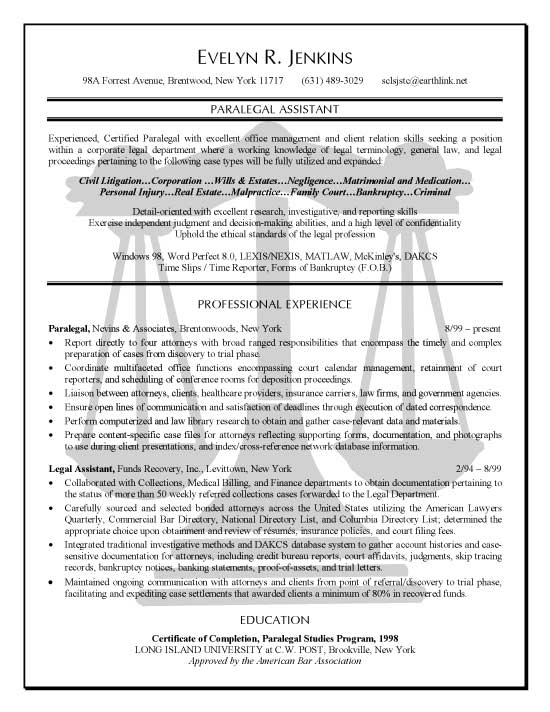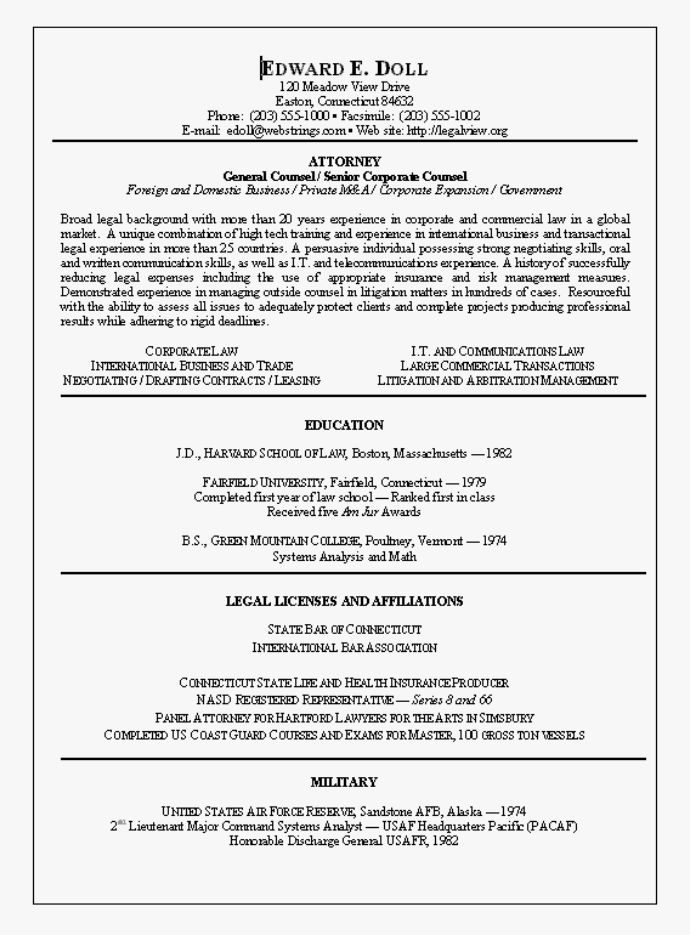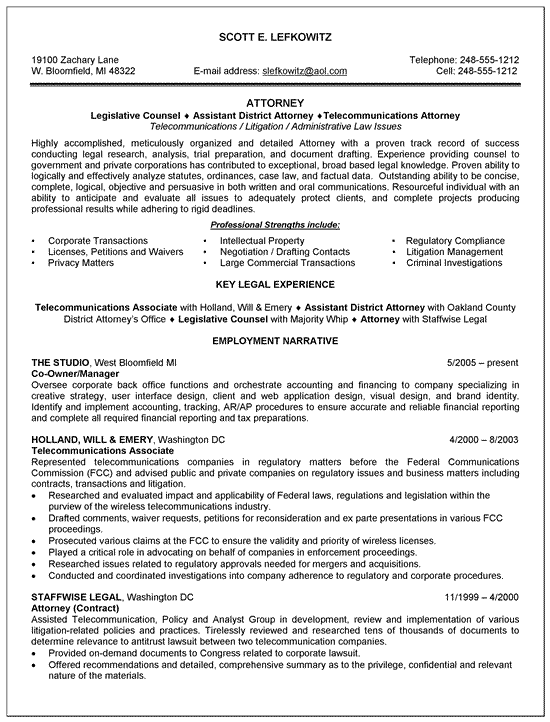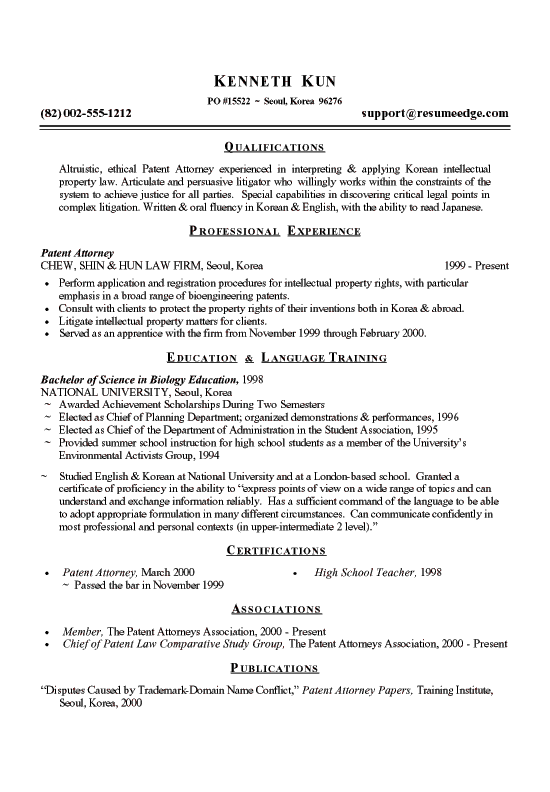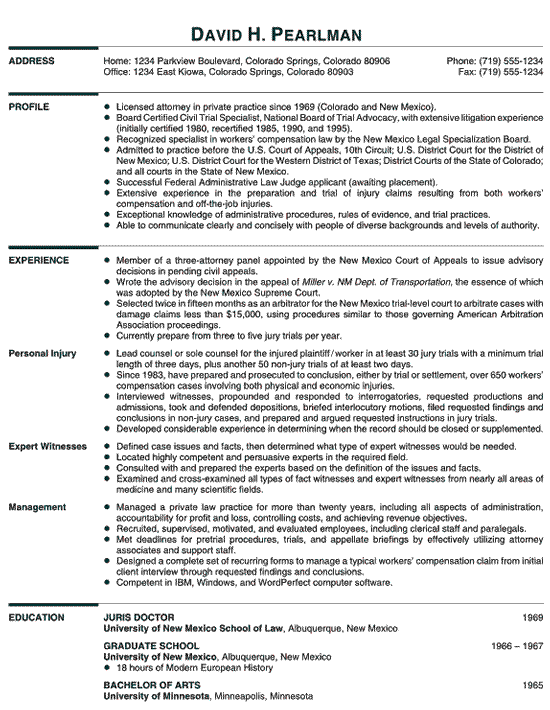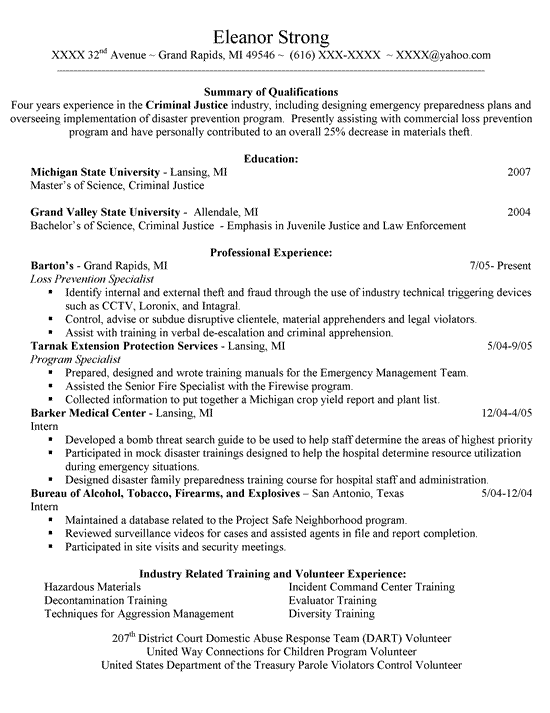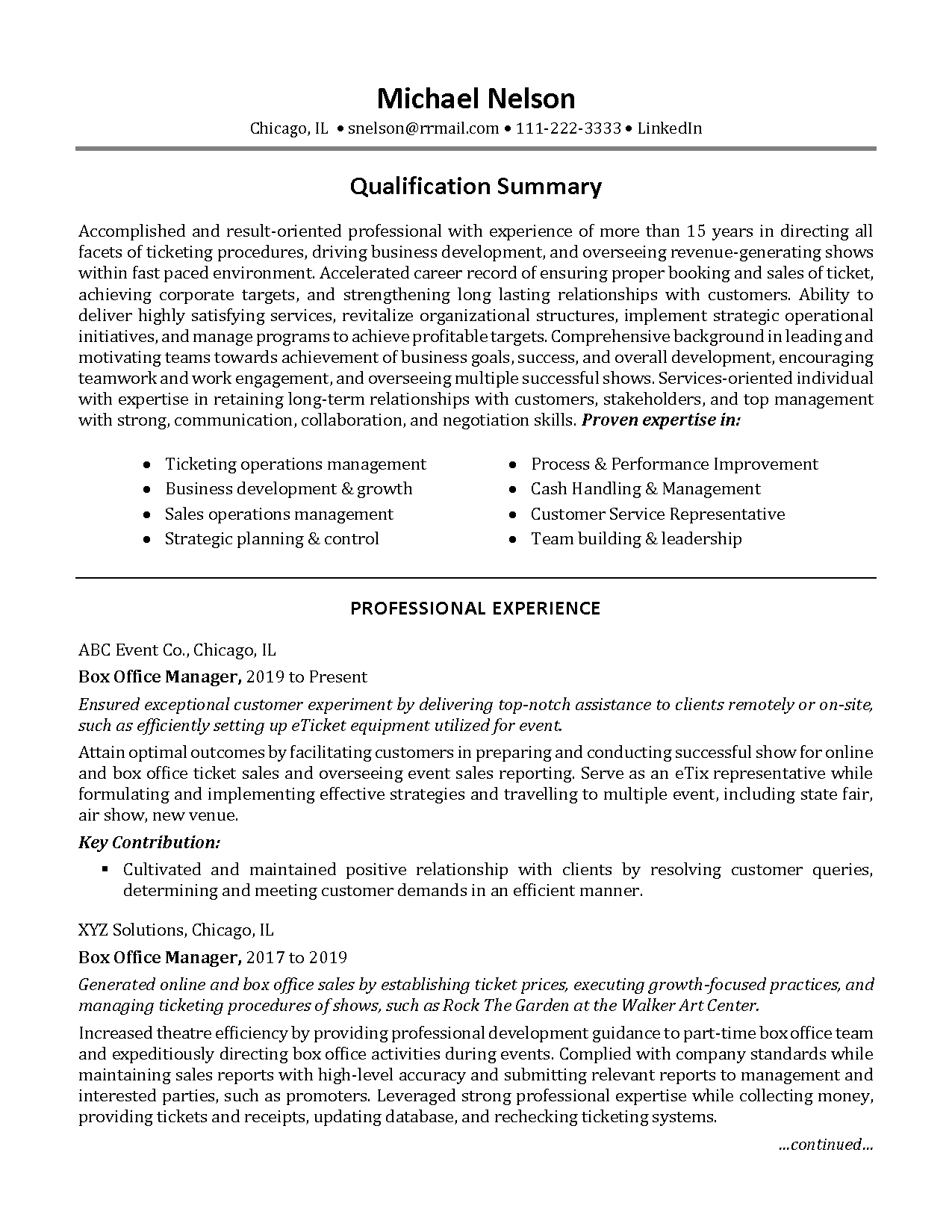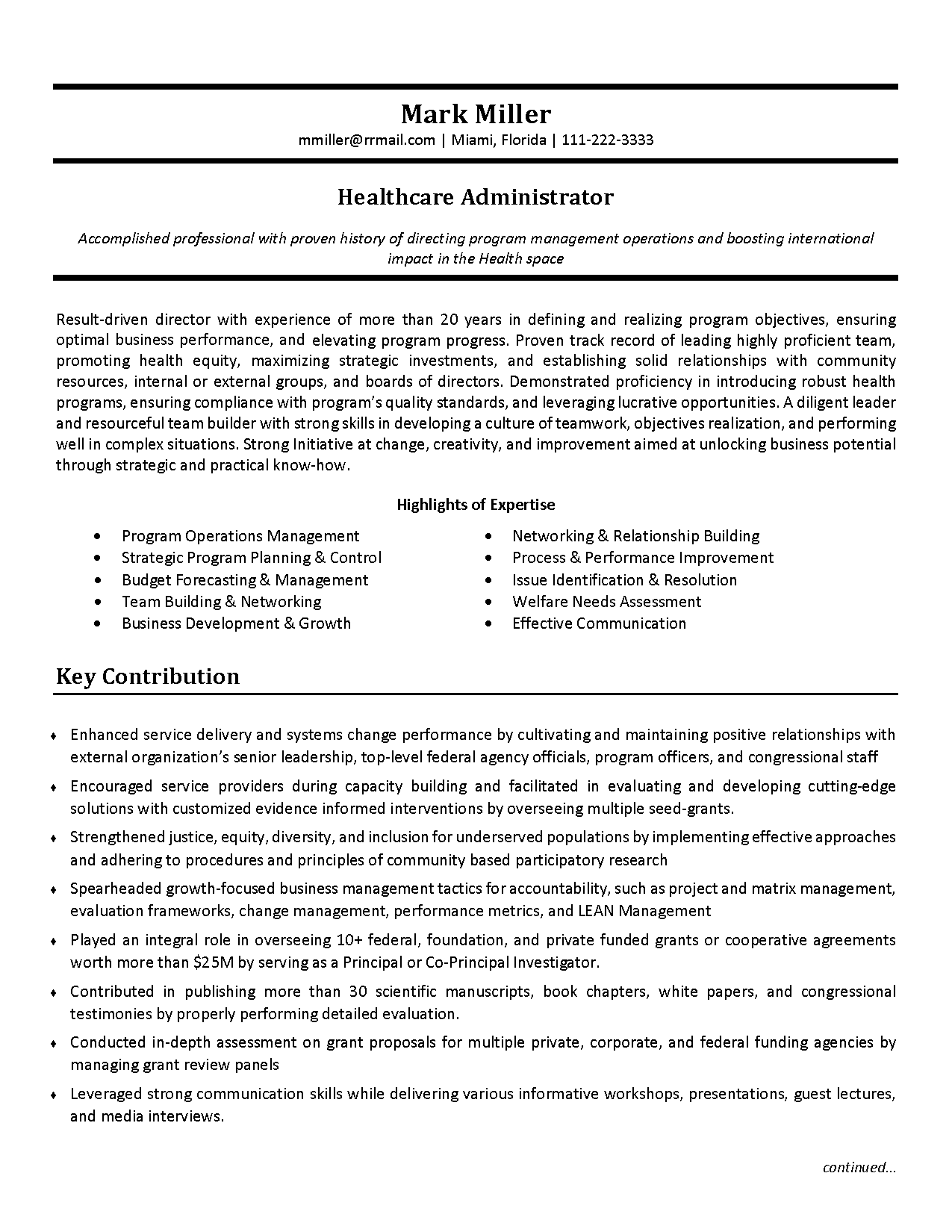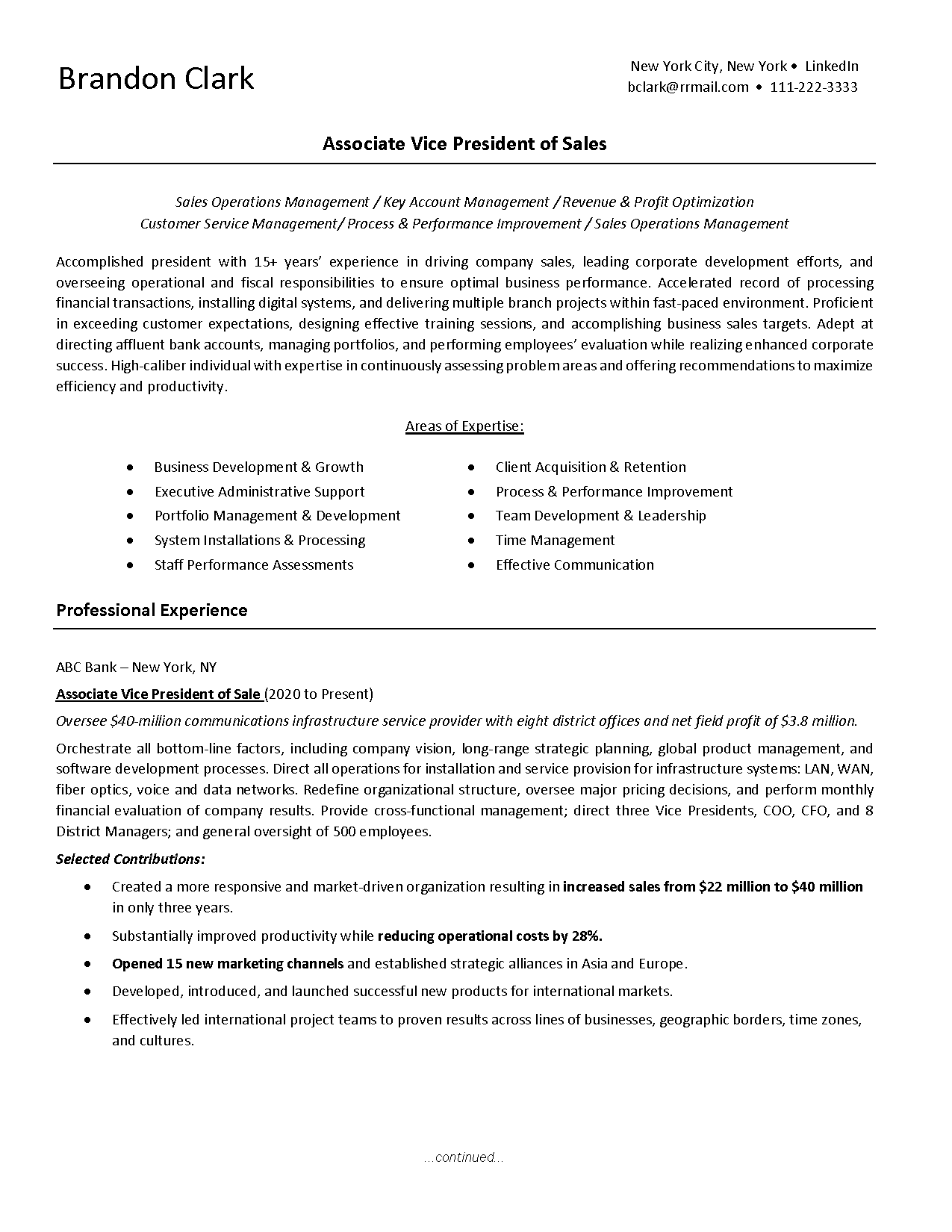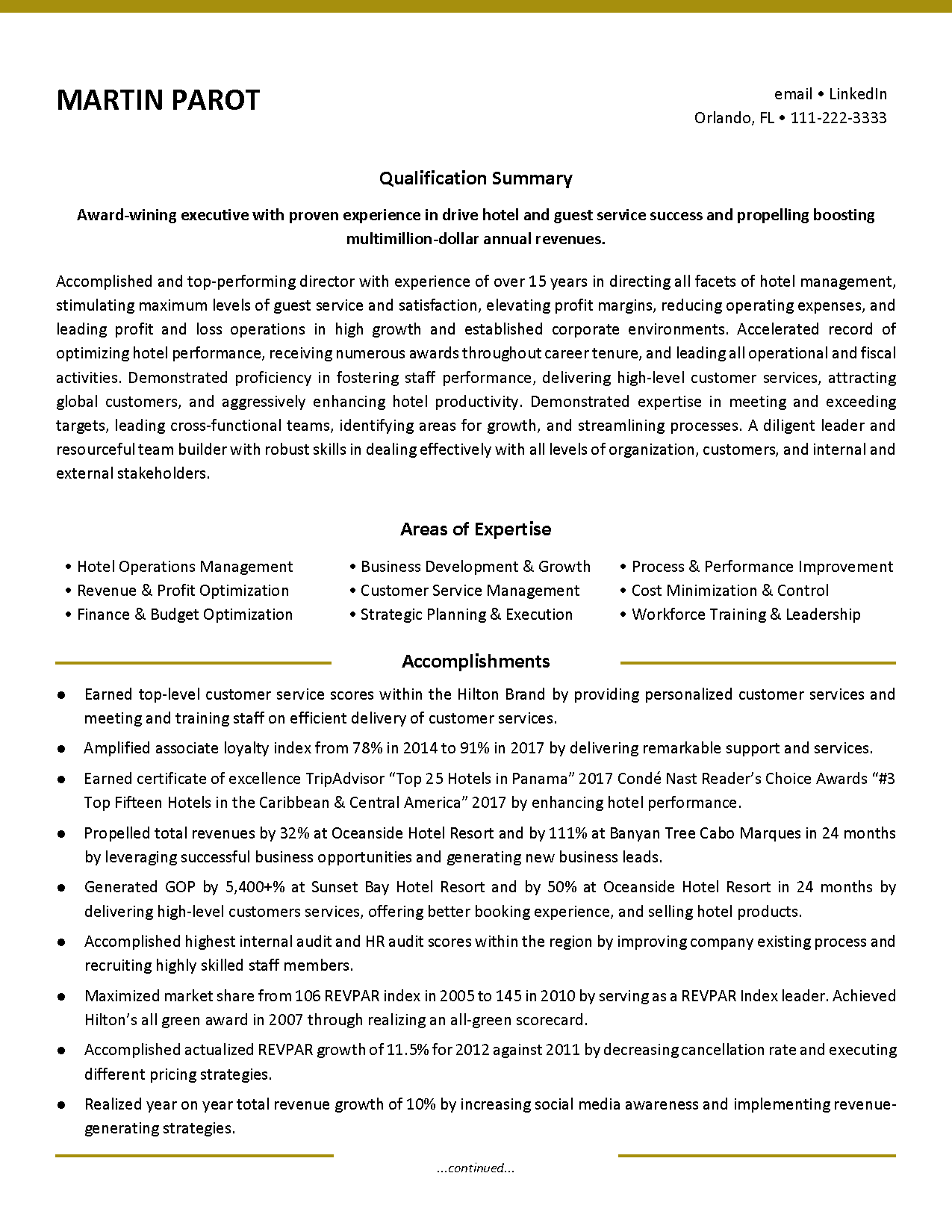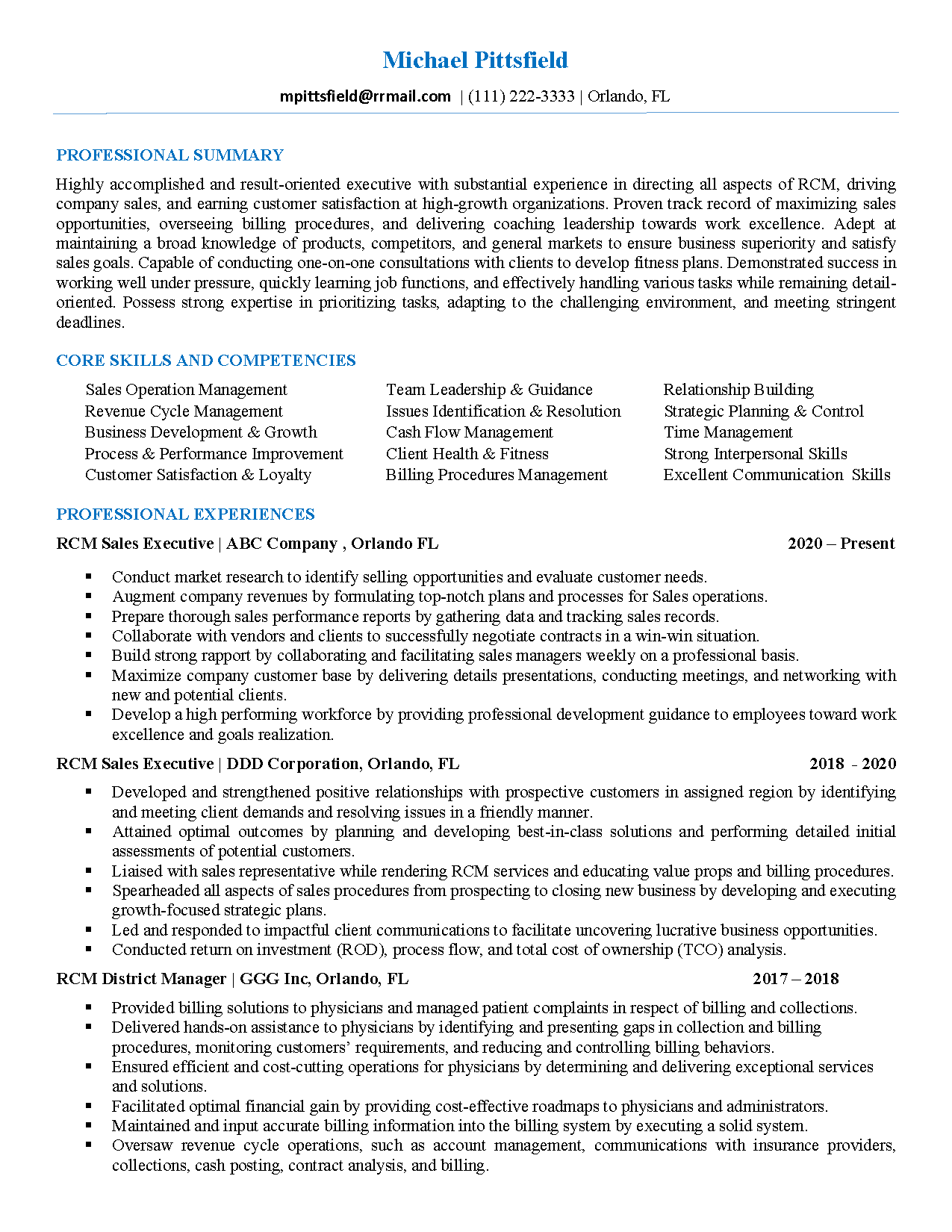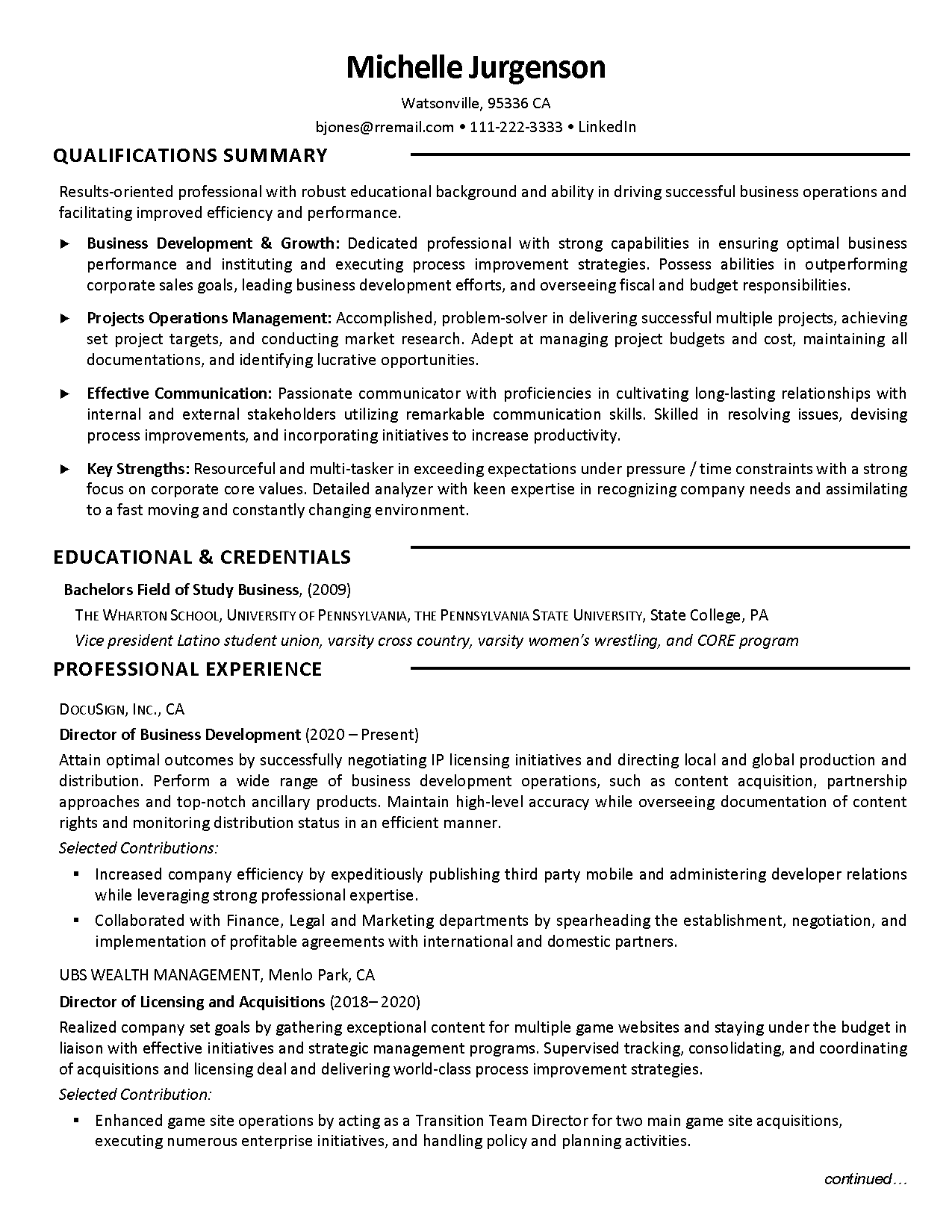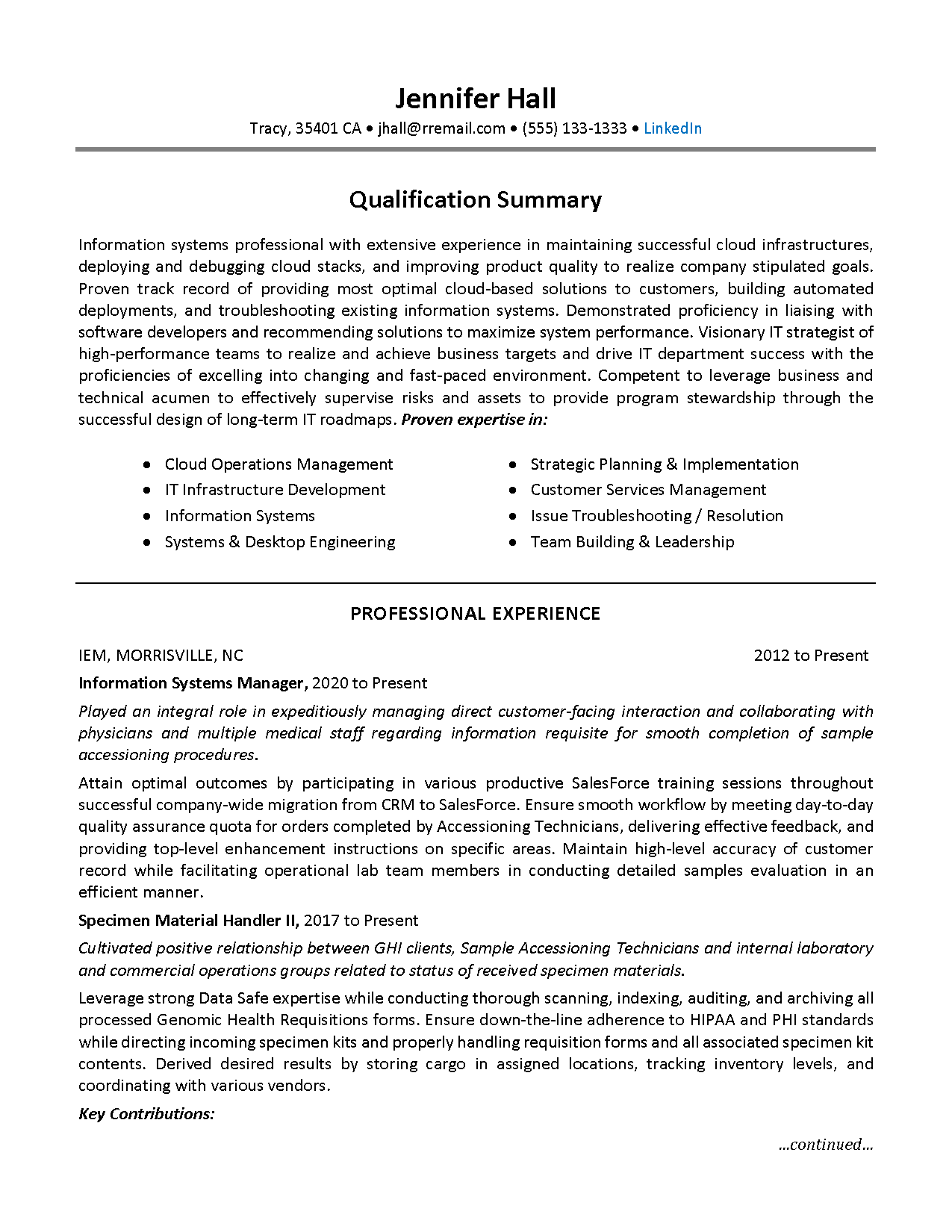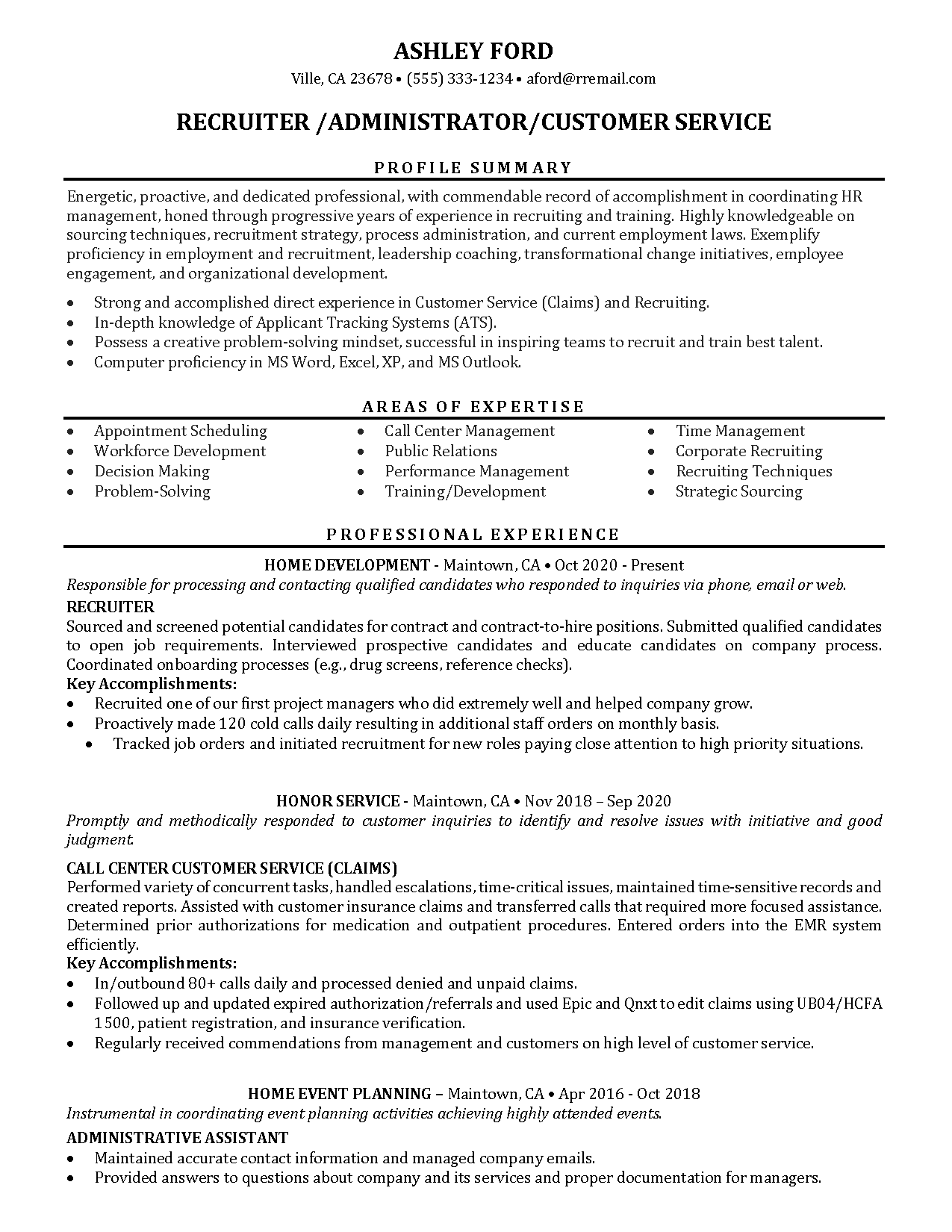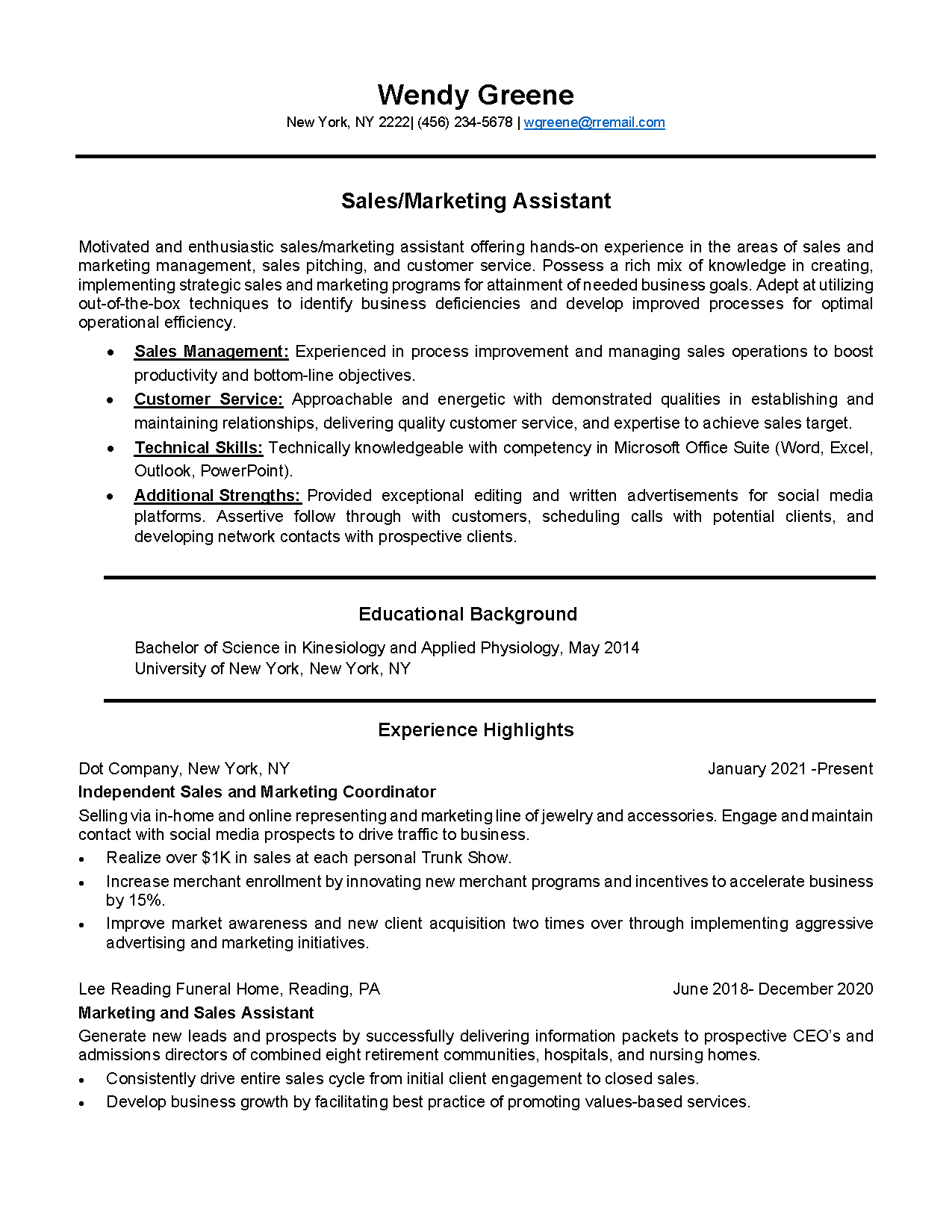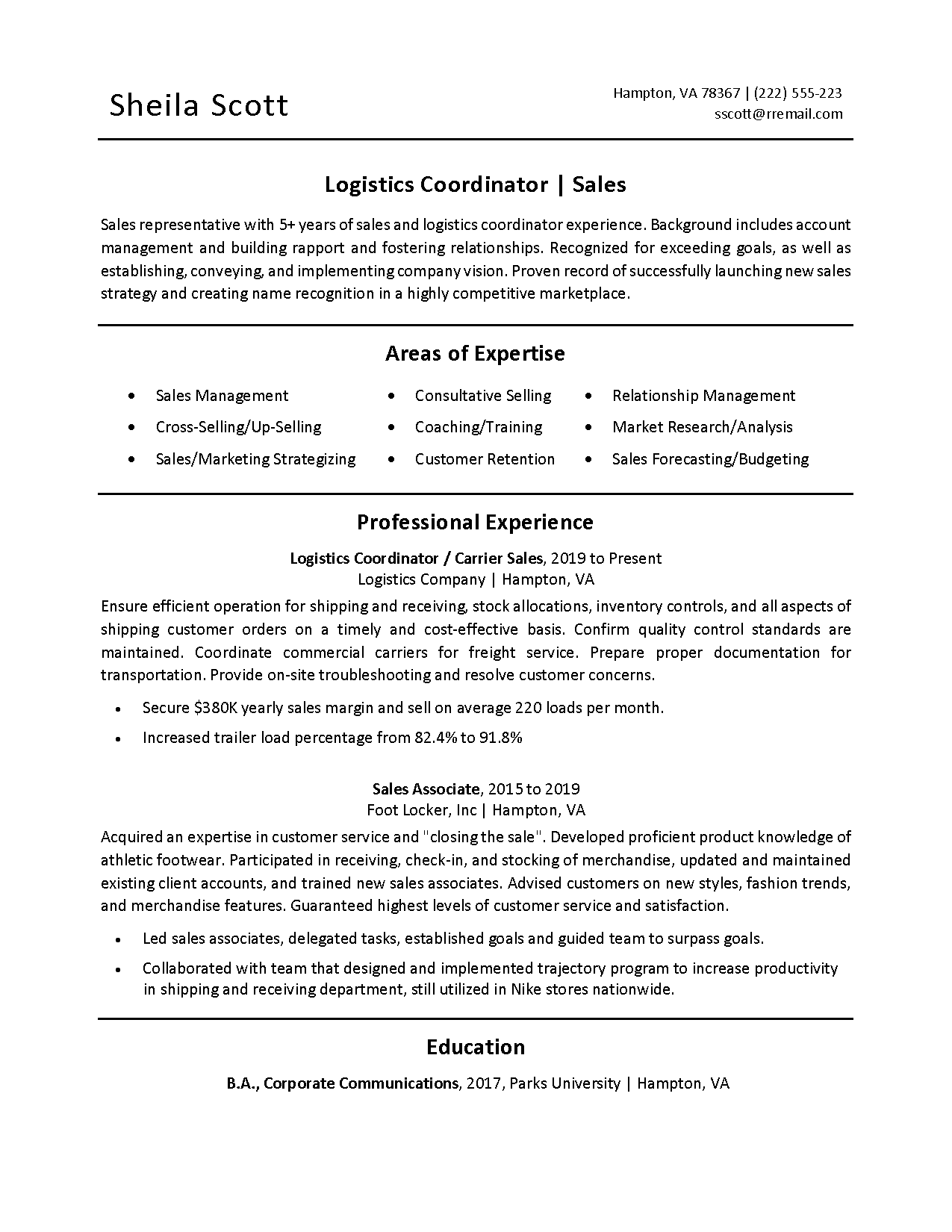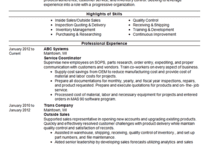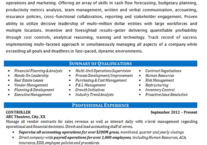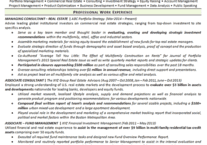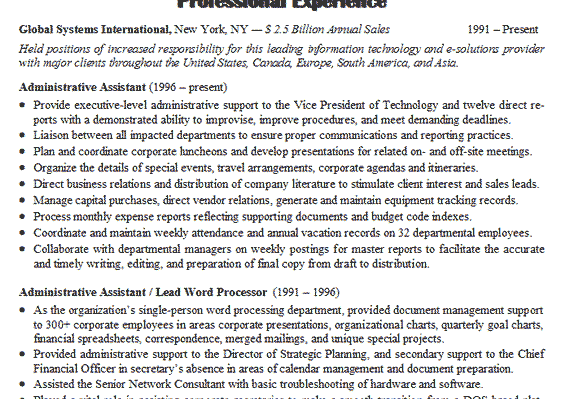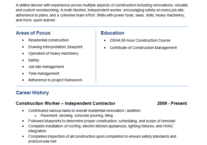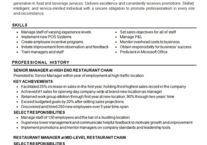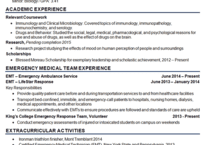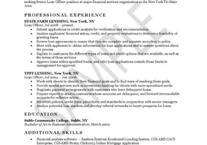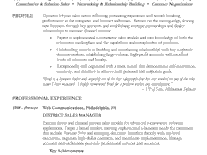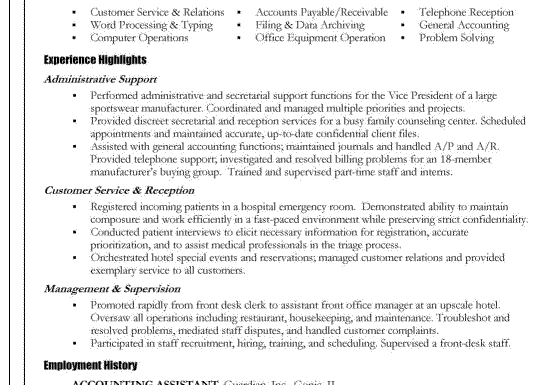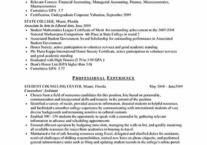This section of resumes provides samples for job positions in the legal sector. These positions include lawyers, attorneys, judges, corporate counsel, paralegal assistants as well as political resumes.
An attorney resume tends to be more like management and executive resumes. Utilize executive style summaries and bulleted achievements to optimize your results.
Resumes in these professions can be either one page or two page documents. With long history of experience, there is no reason that you can't provide enough detail go into two pages. In some cases, three pages of information could be necessary for a senior level attorney with a long case history.
Sometimes an attorney or judge will build a simple one page resume that documents employment, employment dates, affiliations, degrees and specialization. Then they use an addendum that documents only their court cases. This may be necessary if the list of previous employment is extensive or if you have had more than 5-6 high profile cases that justify a long explanation of each case.
Legal Resume examples can provide you with a framework of how to format your resume, what information to include, and how to highlight your achievements. It's important to note, however, that resume samples should be used as a guide, not as a copy-and-paste template. You want to showcase your unique skills and experience and tailor the document to match your unique background.
Start with the format
When using a legal resume example, start by analyzing the format and structure. Take note of the section headers and the order in which they are presented. This will give you an idea of how to organize your own resume. For example, if the example you're using has a "Professional Experience" section listed first, consider doing the same with your own resume.
Education and legal professionals
One important part of being an attorney is having the education and passing the bar. This information needs to be somewhere at the top of the resume. Less experienced lawyers may want to build a formal Education section while experienced lawyers can mention their education in the summary. Support positions such as paralegal can keep the education towards the bottom of the resume unless they are entry level. In that case, a student resume format would be most applicable, where education is stressed at the beginning of the document.
Skills & experience for legal resumes
In addition to formatting, resume examples can also give you an idea of what information to include. Take note of the skills and experience highlighted in the example and compare them to your own. If you have similar skills or experience, be sure to include them in your own resume. However, be sure to not simply copy and paste the information from the example. You want to make sure that the information in your resume is accurate and tailored to your own experience.
Achievements are key
Another benefit of using resume examples is the opportunity to see how achievements can be highlighted. Instead of simply listing job duties, try to include specific achievements that demonstrate your skills and experience. For example, instead of stating that you drafted legal documents, highlight a specific project where you drafted a complex legal document that was instrumental in winning a case.
Targeting areas of law
Attorneys also need to pay attention to the job they are targeting. While it is common for attorneys to work in several areas throughout their careers, it is still important to target and focus a resume on a specific area such as criminal law, prosecution, litigation, arbitration, contracts, bankruptcy, civil rights, etc. Even though you may be capable of performing multiple roles, if you are looking for a specific area, make sure 90% of your resume deals with your capabilities in that area. In some case, an experienced attorney may even build multiple resumes that emphasize different fields of law.

